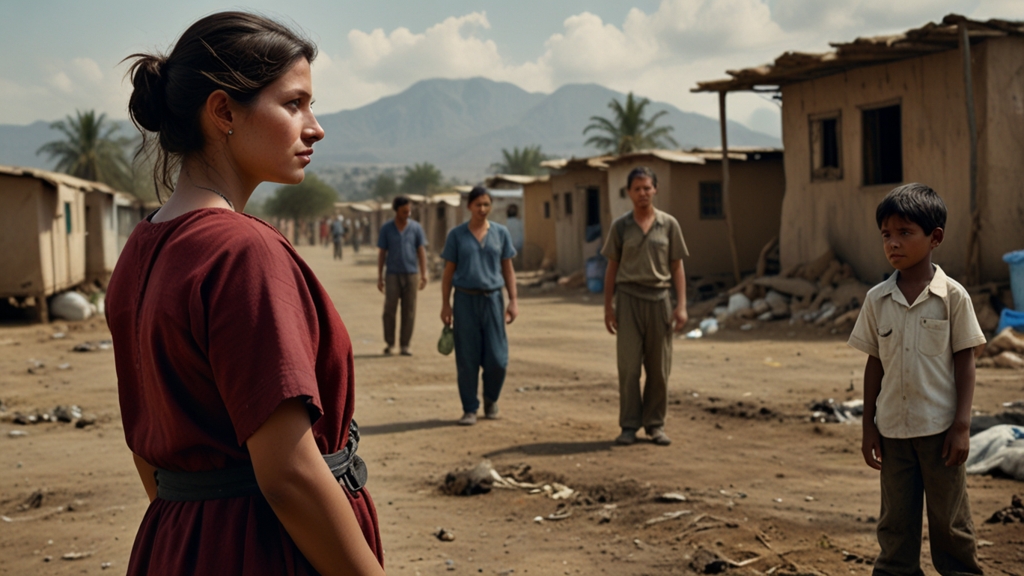The Rise and Fall of Nations: The Aftermath of the World Wars
The 20th century was a period marked by tremendous conflict, transformation, and a reshaping of the global order. Two catastrophic World Wars, which involved many of the world's major powers, fundamentally altered the political and economic landscapes of numerous nations. The aftermath of these wars had far-reaching impacts that paved the way for new alliances, decolonization, and the emergence of the Cold War era.
The Aftermath of World War I
World War I, also known as the Great War, ended in 1918 with the signing of the Treaty of Versailles. This treaty imposed severe reparations and territorial losses on Germany, aiming to prevent future conflicts but ultimately setting the stage for another war. The redrawing of national boundaries across Europe led to a volatile environment, marked by economic hardship and political instability.
Nations like the Austro-Hungarian and Ottoman Empires disintegrated, giving rise to new states such as Czechoslovakia, Yugoslavia, and Turkey. The interwar period saw the rise of fascism in Italy, the spread of communism following the Russian Revolution, and the emergence of the Nazi regime in Germany – all of which contributed to the tensions leading up to World War II.
"The war to end all wars" had ironically laid down the conditions for yet another, possibly more devastating conflict. The socioeconomic tumult and the ideologically driven politics of the interwar years were fertile grounds for the seeds of World War II.
The Repercussions of World War II
World War II (1939-1945) was even more destructive than its predecessor. By its end, much of Europe and Asia lay in ruins, and the death toll was staggering. The Allied powers emerged victorious, but the geopolitical landscape was irrevocably altered. The war led directly to the decline of European colonial empires and the rise of two superpowers: the United States and the Soviet Union.
The United Nations was established in 1945 with the aim of preventing future global conflicts, promoting peace and security. However, the ideological divide between the capitalist West and the communist East resulted in the Cold War, a period of intense rivalry and proxy wars that lasted until the early 1990s.
The Marshall Plan, sponsored by the United States, was instrumental in the economic reconstruction of Western Europe, while Eastern Europe fell under Soviet influence, creating a divided continent. This division was most prominently symbolized by the Berlin Wall, erected in 1961.
Decolonization and New Nations
Both World Wars accelerated the process of decolonization. In the aftermath of World War II, many African, Asian, and Middle Eastern nations gained independence from European colonial powers. The decline of British, French, and Dutch colonial empires led to the emergence of new sovereign states, often amid much struggle and conflict.
India's independence in 1947, followed by the partition that created Pakistan, marked the beginning of a wave of nations seeking self-determination. The 1950s and 1960s saw numerous African countries, including Ghana, Nigeria, and Kenya, achieve independence. This period was pivotal in reshaping global dynamics and altering the power structures that had once been dominated by European imperialist ambitions.
The Cold War Era and Beyond
As new nations emerged, the world witnessed a bipolar struggle between the US and the USSR, impacting international affairs through alignments and conflicts such as the Korean War, the Vietnam War, and various coups and revolutions worldwide. The Cold War era was also marked by significant technological advancements, including the space race and nuclear arms race.
The eventual dissolution of the Soviet Union in 1991 marked the end of the Cold War, ushering in a new era of American unipolarity. However, the post-Cold War period has been characterized by the rise of new powers like China and the re-emergence of Russia as significant players on the global stage.
The end of the Cold War brought about new challenges, including the management of post-Soviet states, the spread of democracy, and the rise of global terrorism. The international community continues to navigate these complex issues in an ever-changing world.
Conclusion
The aftermath of the World Wars reshaped the global order in profound ways. From the redrawing of national boundaries and the rise and fall of empires to the ideological clashes of the Cold War, the 20th century was a testament to the dynamic and often tumultuous nature of international relations. As we continue to navigate the complexities of the modern world, the lessons learned from the aftermath of the World Wars remain crucial in understanding and addressing current global challenges.









